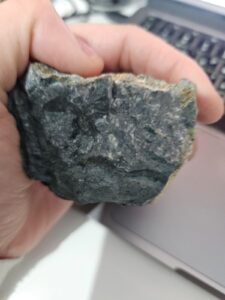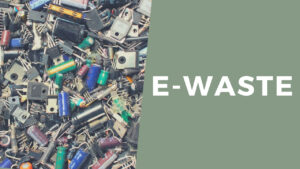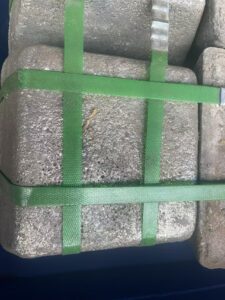- China has become more dependent on South Africa for its chrome and manganese requirements
- China has sufficient stocks to last a few months
- Depending on how long South Africa remains in lock-down will determine the impact on prices
- However, Jonathan stresses that this was always going to be a challenging year for China, irrespective of the Corona Virus owing to the US trade war and the general slow down in the Chinese economy.
Jonathan Claesen is a seasoned South African chrome, iron and manganese trader, based in Shanghai. As the founder of Beyond Trading Global Group, he is strategically positioned to market products within four main regions in China, including Qingdao, Wuhan, Shanghai and Hong Kong.
In an interview with Core Consultants on the 8th April 2020, Jonathan explains how he was in Wuhan when the virus broke out, the impact on China’s economy and the outlook for chrome and manganese demand. The following is a transcript of the video.
Lara Smith: I am sitting here with Jonathan Claesen from Beyond Trading Global Group in Shanghai. Jonathan, how you doing today?
Jonathan Claesen: Good yourself?
Lara Smith: I’m well, thank you. And I can see you in an office and the rest of us… This is your home? Is this by design or is this due to the ongoing virus?
Jonathan Claesen: No, I work with Sabilla and I’m the only one here, so it didn’t really make sense to have an office for one person. And it just made more sense to work from home anyway, most of the time I’m traveling, so you don’t really need an office.
Um, yeah, so just me by myself here in Shanghai, just it just didn’t make sense to have an office. So for the last, what, six months I’ve been working from home, which is a bit of a getting used to, but, I think after Covid19, everyone’s going to be used to working from home, so that’s not going to be that strange anymore.
Lara Smith: Yeah. We’re into the WFH economy. I’ve just learned the acronym yesterday. Work from home
Jonathan Claesen: Yeah. Look, I think, I think a lot of lot’s going to change from, from all of this. You know, some things good, some things bad. I think more and more companies are certainly moving towards this and like for us, you know, anyway, I have to sell the materials so I’m visiting customers basically every second week. So half the time I’m not even here so it doesn’t make sense to.
Lara Smith: And you were in Wuhan when it all started, right?
Jonathan Claesen: Yeah, so I was just on the outskirts of Wuhan. So my wife is from a city called Huang Shu, which is a part of Huanggang. So Huanggang was the, basically the second most hit city in China. We go back every year for the Chinese new year. And, uh, you know, we were there right when it happened. So unfortunately for us they locked down the borders in Hubei and we kind of got stuck there, so we spent seven weeks, seven weeks at home. So, it’s quite an adventure. But I think everyone’s kind of going through that. I think China now, obviously, we – now um,
I mean, even Hubei, I think today, the eighth, from today, Wuhan is basically the whole lockdown Wuhan itself has stopped. So people who have been stuck there for literally since end of January are able to travel home. And so yes, I certainly hear things are slowly, slowly coming back to normal.
Lara Smith: And the Chrome markets. What’s happening there?
Jonathan Claesen: I mean, it’s very dependent on what’s going to happen in South Africa now. Obviously the lockdown is going to be a big factor, I think. Uh, you know, I think, you know, historically China’s become more dependent on South Africa, both on, on chrome and manganese. The good news is I think that they have enough stock to last them a couple of months.
The bad news is, is, you know, depending on how long a lockdown is going to stay in South Africa the longer it’s going to impact the stocks and the reserves. Yeah. Cause I’ve spoken to somebody this morning in South Africa and he was saying to me that apparently last night they arrested a whole lot of illegal truck or trucks that shouldn’t be transporting ore so at this stage it seems that unless you’ve got material in the port or you’ve got material on the water, you’re not gonna be able to move anything inland.
Lara Smith: So demand locally has picked up then?
Jonathan Claesen: So yeah look I think the spot market has come up in China a little bit. I think in reaction to them realizing that, look, if they consuming 1.2 or 1.3 million tons of Chrome every month, and okay fine there’s 3 million tons in Tianjing and there’s probably 4 million tons in all of China, that’s still, you know, it’s two, two and a half, three months worth of stock.
So if it gets extended after 21 days, which, that’s certainly the rumor that’s going around it’s going to get to a stage where supply will be affected. But look, I think it’s not that simple that, I mean, you know, even in China itself, the Covid 19 obviously had a huge impact globally. So stainless steel is also being affected.
So the reality is, if demand for stainless steel globally slows down, then the demand for ferrochrome will be less and ultimately the demand for chrome will be less. So, yeah, look, I think, you know, this is going to have a massive massive impact on absolutely everything.
Lara Smith: Well, there’s sort of two discussion points going on with respect to the manganese and the chrome market. And this is sort of what I, what I’m understanding is that on the one hand, you’ve got some global demand rather for stainless steel products, which is going to dip, and that’s obviously because people are just strapped for cash and a lot of people staying home, a lot of businesses are going under and then you’ve got China, which to stimulate their own local economy will pick up on the infrastructure demand. So from there they might be consuming more of their stainless steel. What do you see?
Jonathan Claesen: Yeah, no, certainly. I mean, look, I think globally, I mean, even in terms of any businesses in China, I mean, you know, you walk the streets of Shanghai now and, uh, you know, a lot of businesses have been shut down and not, not shut down temporarily you can see that restaurants and shops are empty, they’ve been literally they haven’t survived the exorbitant rent that they have here. You know, you can’t survive not doing business for, five or six weeks or so. So, so definitely there’s, there’s going to be, it’s going to be a long term impact. I think China itself, the government is trying to get the economy going. And certainly I think China is probably, you know, being the first major economy to have been hit by the virus they’re also now in line to be the first one to recover. Right. So certainly, certainly that’s put them in a position, especially when you, for example, you’re the manufacturing hub of the world, right? So whether you’re looking for protective gear, and I was reading this morning that China’s producing 0.1 billion masks per day, you know, certainly, you know, I mean, they’re exporting it. And I mean, that’s come with a lot of problems too, because as, as your mass manufacturing, the quality, so such certainly is not, not upheld. And it’s more about volumes than getting the product’s done properly, but, but definitely I think China is going to try and stimulate its own economy. Um, but, but then again, you know, you’ve got to understand that 2020 was going to be a tricky year for China even before all of this covid 19 stories.
And I mean whether it was the ongoing trade war with the US or whether it was just a slowing down in the general economy. This has just been another, you know, another blow to what was already going to be a difficult year. So I think, yes, I think the government is trying, I think they’re going to put measures to try and stimulate the economy. The good thing about China today is, you know, you’ve got close to a billion people that are middle class and, and certainly having a billion people in investing in your own economy is, is an economy on its own, but it’s, it’s going to take a long time. It’s, it’s certainly not going to be fixed overnight or in a short period of time. I think this is definitely going to have a long term impact, not just in China, but globally. I think it’s, you know, it’s going to be a very tough year.
You’ve got local demand picking up.
Jonathan Claesen Sure. Yeah. I mean, manganese.
Lara Smith: And so, and you’re not able to buy at the moment?
Jonathan Claesen: No, look, I mean, unless you’ve got cargo out on the water or cargo in port in South Africa, not going to get it out, you know, so the reality is you’re right, spot market manganese shot up.
I think it slowed down a bit this week. A lot of it was, I wouldn’t call it panic buying, but certainly people who wanted to get in thinking that perhaps this is at the lowest point in trying to get in there. Um, and I think both chrome and manganese, um, yeah, definitely the market has picked up in the last weeks or so, but this week it seems to be a bit quieter, you know, I think people just want to see what’s going to happen now in South Africa.
Cause what is it? It’s day 13 or day 14 of a, of a 21 day lockdown. So technically everyone’s very curious to see what’s going to happen, whether it’s going to get extended and all that. I think that’s going to have a big impact on the market.
Lara Smith: Well let’s just say it gets extended cause they’re now talking July where do you then see the chrome market and manganese market.
We’ve obviously had points where there have been times when the chrome market’s been particularly volatile, we’ve seen manganese at seven recently. We’ve seen a down again to three point something. So where are we, where are you seeing it?
Jonathan Claesen: The harsh reality, especially on Chrome and some extent, you can say it in manganese, although there are some very big differences between the supply, but if you take chrome as an example, it’s way over supplied you know, there’s no doubt that on the normal month where prices are at a level where suppliers are making profits, or let’s say I’m not gonna, I mean, I don’t have the exact number, but let’s say the market is at 150 for UG2 and everybody’s making money at those levels. You know, South Africa can ship 1.3 million tons in a month, and that’s probably higher than China’s consumption. So end of the day, as long as you’ve got a market where the supply is more than the demand in a physical market, it’s a no brainer that, that the prices aren’t going to go up because when the buyers is trying to get material, and if the market is, is today at 120, if for example, Tharisa doesn’t want to sell at that price and perhaps Glencore will, and then if Glencore doesn’t, perhaps Assmang will and you know, again, that’s just the harsh reality of the market being over supplied.
You know, where we are now is, you know, you’re hearing of Samancor that are implementing care and maintenance and so is Glencore for a period of time. And so has Assore so yeah the reality is you’re gonna have to see how much material is going to still be able to come out of South Africa, I think that’s going to be the key factor because end of the day, it’s like the African Bush, and if you’ve got too many lions and you don’t have enough Impalas. It’s just a matter of time where that equilibrium comes. And you’ve seen that over the years. You know, when was it, 2015 when prices shot down to below a hundred.
What happened is basically everybody left the market. It was only a few more people left, and those people were able to push prices up very quickly, but just because there were more buyers than there were suppliers. Unfortunately, now it’s the opposite. So until that balance comes back, we’re not going to see a big jump in price.
It’s just a harsh reality.
Lara Smith: Okay. Thank you. And any sort of final words before we wrap up?
Jonathan Claesen: I just hope that everybody stays safe and testing times and you’re got to feel a lot of compassion, especially for people in South Africa that are not in the most comfortable of circumstances.
And you know, it’s going to be tough. It’s tough for a lot of people. Yeah,
Lara Smith: Alright Jon, thanks so much and thank you for your insights and yeah, I mean, great talking to you.
Jonathan Claesen: Thanks.
If you are in the mining or engineering industry and you wish to find out more about participating in our “Core from the Couch” series of interviews, please email nicole@coreconsultants.org





